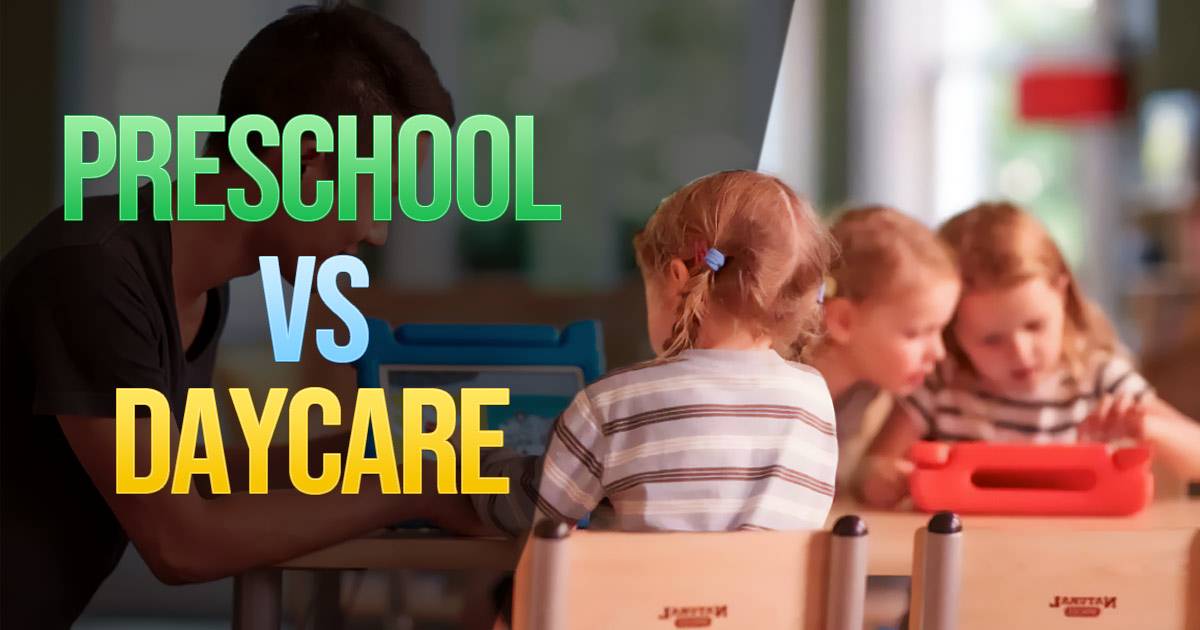Distinguishing Between Preschool vs Daycare: Choosing the Right Fit for Your Child

Discovering the right place to take care of kids that suits each family’s needs can be tricky. Child care comes in various types, some focusing more on learning while others on being social. You might be curious about the different services they provide and why some are regulated while others aren’t. Let’s explore the meaning behind preschool vs daycare and how they differ. We’ll check out what they offer and what you can usually find in each kind of program.
Catering to Your Family’s Varying Needs
When it comes to picking between preschool and daycare for child care, every family has their own special needs for their child. Some might wonder if preschool is considered daycare and if it’s the best option for them. However, every kid is different and grows in their own way. Programs for kids aren’t all the same.
In the first five years, the brain is super busy and children are always learning new stuff. This time is when the brain grows a lot, making good experiences really important. These early years are super important for each kid to reach their own goals. Parents know their kids best and understand what they need to do well. It’s up to the program, whether it’s child care or preschool, to give exactly that.
What is Daycare?
Daycare might sound simple, but it actually means different ways to take care of kids while parents work. You can find full-time centers, part-time home care, or special preschools like Waldorf. There are so many choices! But with lots of options, it’s tough to find what’s just right for a family. Still, having these choices is awesome when you’re looking for really good child care.
What is Preschool?
When you think about preschool, it’s normal to wonder how it’s different from daycare. One big difference is their focus: Daycares care for kids, while preschools aim to teach.
By 2001, over half of three and four-year-olds were going to preschool to get ready for regular school. As more moms started working, the need for childcare shot up. Parents saw preschools as a way to give their kids a good start in learning and socializing.
Childcare goes by many names like preschool, daycare, and nursery school. But each of these is different in how they work and what they teach. Simply put, preschool is a place where kids aged four to six learn and play in a safe, fun space.
Preschool is where kids learn before starting kindergarten. It can be run publicly or privately, sometimes getting money from the government to help.
Key Differences Between Preschool vs Daycare
Parents sometimes mix up preschool and daycare, but they’re quite different. The main gap between them is the ages of the kids in each. Daycare takes kids from six weeks old, while preschool is for kids between 2 and 5 years old.
Age Differences
The age of the kids sets daycare and preschool apart. Daycare is mostly for little ones, including infants and toddlers. Some might even have after-school programs for older kids. Simply put, daycare is where kids play while parents work. Good daycares usually cost money and only take in a certain number of kids at once.
Schedules
One big difference is the hours at preschools compared to daycares. Preschools often have set schedules that follow the school year, including breaks and holidays. This might be tough for parents who need year-round child care but helps kids get used to a regular school routine.
Caregiver or Staff
As per the law, the number of caregivers for kids changes based on their age in child care. For babies in daycare, the rules say there should be 1 caregiver for every 3 to 5 infants, depending on the state and how many kids there are.
When kids grow up a bit, the rules change too. For ages 3 to 5, the state often allows a 1:12 caregiver-to-child ratio, but some centers might have even fewer kids per caregiver to give more attention to each child.
Potty Breaks
Both home-based and childcare centers usually need kids to be potty trained by age 3. But honestly, it’s not always realistic for every child to be fully trained by then. While you might hope for it, it’s often not developmentally right to rush.
Because of rules, many places don’t have changing stations. So, if a child is still in diapers, parents need to plan ahead. Plus, since preschool groups are small, staff can’t always give individual attention. In daycares for younger kids, changing diapers is part of the staff’s job.
Preschools might not handle diapers due to the challenges of potty training. If your child struggles with it, think about this when picking a preschool.
Nursery vs Preschool – Are They the Same?
Preschools often have a structured plan and teachers with special training, but this can make them more expensive. On the other hand, nursery schools usually offer a more laid-back atmosphere, with flexible enrollment and a wider range of programs. They’re often cheaper too.
Preschool and Daycare: Supplementing Your Child’s Development
Discovering the right child care option tailored to your family’s unique needs can be challenging. With varying approaches between daycare and preschool, it’s vital to understand their distinctions to make the best choice. While daycare caters to younger children, offering a play-based environment and necessary care, preschools focus on early education, preparing children for future learning.
Consider the individualized attention and educational programs each offers. Whether it’s the play-centric care of daycare or the structured learning of preschool, finding the perfect fit for your child’s age, developmental stage, and your family’s schedule is essential for their growth. Don’t forget, both settings aim to provide a nurturing environment, each with its unique approach.
